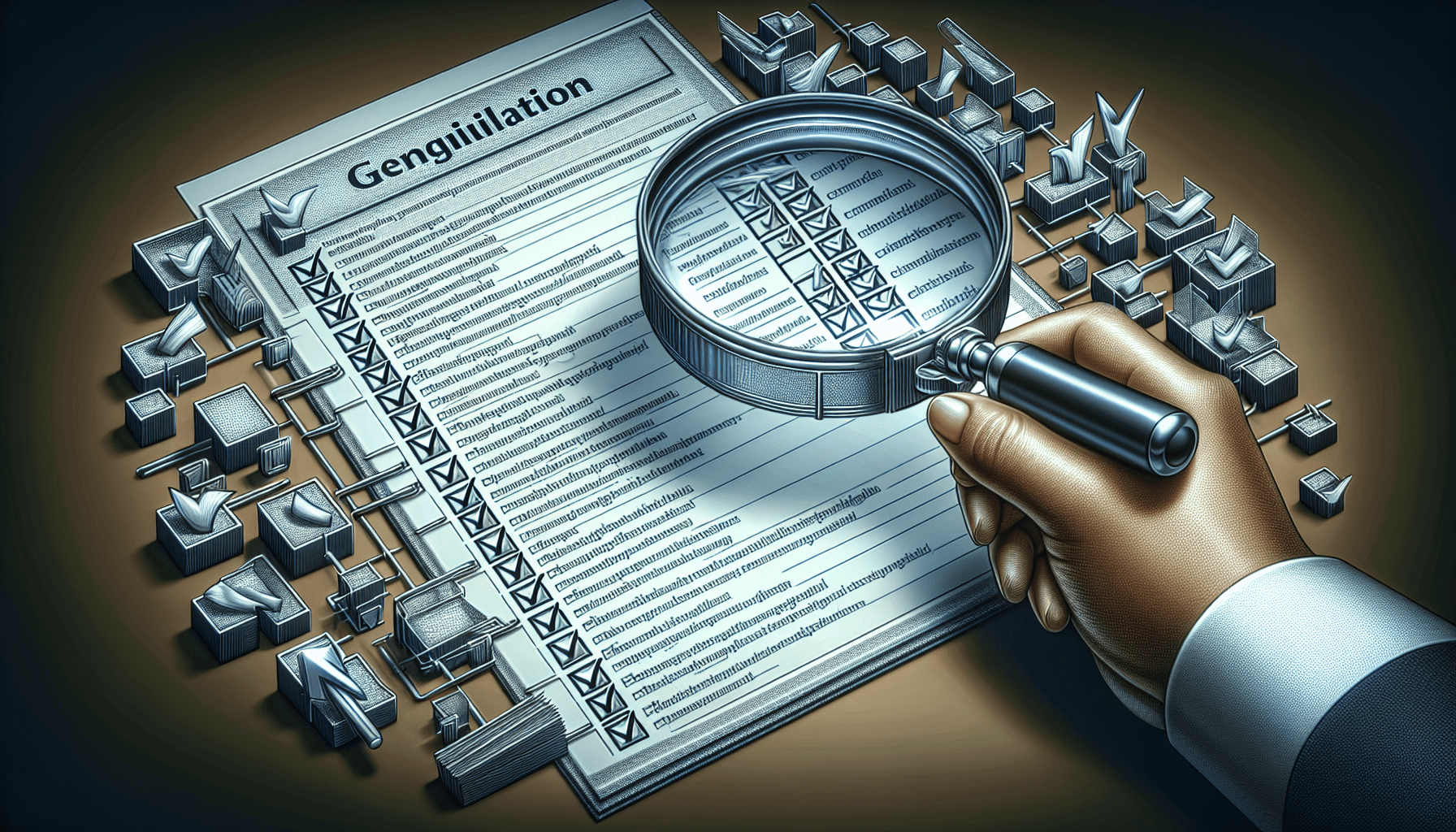In the realm of cybersecurity, compliance audits play a crucial role in ensuring organizations are prepared to effectively respond to incidents. These audits not only assess whether systems and processes are meeting regulatory requirements, but also help identify potential vulnerabilities that could be exploited by cyber attackers. By conducting regular compliance audits, organizations can proactively enhance their incident response capabilities and minimize the impact of data breaches. This article will delve into the significance of compliance audits in incident response and explore how they can contribute to a comprehensive cybersecurity strategy.
The Role Of Compliance Audits In Incident Response
Have you ever wondered what the relationship is between compliance audits and incident response in organizations? In this article, we will explore the importance of compliance audits in incident response processes and how they can help organizations effectively deal with security incidents.

Understanding Compliance Audits
Compliance audits are an essential part of ensuring that organizations adhere to industry regulations, standards, and internal policies. These audits are conducted to assess whether an organization’s practices, procedures, and systems comply with specific requirements.
Importance of Compliance Audits in Incident Response
Compliance audits play a crucial role in incident response by helping organizations identify vulnerabilities, gaps in security controls, and areas of non-compliance that could lead to security incidents. By conducting regular audits, organizations can proactively address these issues and strengthen their incident response capabilities.
Compliance Standards and Regulations
Various compliance standards and regulations exist to help organizations establish a framework for ensuring the security and privacy of their data. Some of the most common standards include:
- HIPAA (Health Insurance Portability and Accountability Act): Ensures the security and privacy of protected health information.
- PCI DSS (Payment Card Industry Data Security Standard): Ensures the secure handling of credit card information.
- GDPR (General Data Protection Regulation): Ensures the protection of personal data for individuals within the European Union.
By complying with these standards and regulations, organizations can mitigate the risk of security incidents and ensure the protection of sensitive information.
Conducting Compliance Audits
Compliance audits are typically conducted by internal or external auditors who evaluate an organization’s adherence to specific standards and regulations. The audit process involves:
- Planning: Defining the scope of the audit, identifying key stakeholders, and establishing audit objectives.
- Data Collection: Gathering evidence, such as policies, procedures, and system configurations, to assess compliance.
- Assessment: Analyzing the collected data to determine compliance with standards and regulations.
- Reporting: Documenting audit findings, identifying areas of non-compliance, and recommending corrective actions.

Incorporating Compliance Audits into Incident Response
Integrating compliance audits into incident response processes can enhance an organization’s ability to detect, respond to, and recover from security incidents. Here are some ways in which compliance audits can support incident response efforts:
Early Detection of Vulnerabilities
By regularly conducting compliance audits, organizations can identify vulnerabilities and weaknesses in their security controls before they are exploited by malicious actors. This early detection enables organizations to proactively address these issues and prevent security incidents from occurring.
Strengthening Incident Response Plans
Compliance audits can help organizations assess the effectiveness of their incident response plans and procedures. By evaluating the organization’s ability to detect, contain, and eradicate security threats, audits can highlight areas for improvement and allow organizations to enhance their incident response capabilities.
Identifying Critical Assets
Compliance audits can help organizations identify and prioritize critical assets that require enhanced protection. By understanding the value of different assets and their potential impact on the organization, organizations can focus their incident response efforts on protecting these assets from security threats.
Improving Coordination and Communication
Compliance audits can foster better coordination and communication among different departments within an organization. By involving stakeholders from IT, legal, compliance, and other areas in the audit process, organizations can ensure that incident response efforts are well-coordinated and that relevant information is shared effectively.
Best Practices for Integrating Compliance Audits into Incident Response
To effectively leverage compliance audits in incident response processes, organizations should consider implementing the following best practices:
Establishing Clear Roles and Responsibilities
Define the roles and responsibilities of key stakeholders involved in both compliance audits and incident response. Ensure that individuals understand their duties and are prepared to collaborate effectively to address security incidents.
Regularly Reviewing and Updating Incident Response Plans
Review and update incident response plans regularly to align them with the findings of compliance audits and changes in security risks. Ensure that incident response procedures are well-documented, tested, and understood by all relevant personnel.
Training Personnel on Incident Response Procedures
Provide training to personnel on incident response procedures, including how compliance audits can inform incident response efforts. Ensure that employees are aware of their responsibilities during security incidents and are prepared to respond effectively.
Implementing Security Controls Based on Audit Findings
Implement security controls based on the findings of compliance audits to address vulnerabilities and gaps in compliance. Regularly monitor and assess the effectiveness of these controls to ensure that they adequately protect the organization’s assets.
Conducting Post-Incident Reviews
After a security incident occurs, conduct a post-incident review to assess the organization’s response and identify areas for improvement. Use the insights gained from these reviews to update incident response plans and enhance incident response capabilities.
Conclusion
In conclusion, compliance audits play a vital role in incident response by helping organizations prevent, detect, and respond to security incidents effectively. By integrating compliance audits into incident response processes and following best practices, organizations can strengthen their security posture and mitigate the risks associated with cyber threats. By prioritizing compliance and incident response, organizations can enhance their overall resilience to security incidents and protect their sensitive information from unauthorized access.



